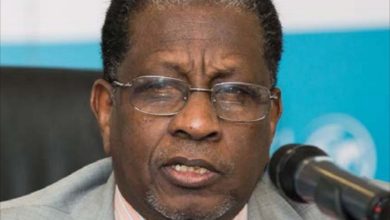UAE Aggression… The Right to Invoke Article 51

By: Mohamed Wada’a
A statement from the Security and Defense Council stated:
(The entire world has been witnessing, for over two years, the crime of aggression against the sovereignty, territorial integrity, and the safety of Sudanese citizens by the United Arab Emirates, executed through its local proxy—the terrorist and rebel Rapid Support Forces (RSF) militia and its political allies. When the UAE realized that its local proxy had been defeated by our Armed Forces—the legitimate institution responsible for defending the homeland and preserving its resources—it escalated its support and mobilized more of its capabilities to supply the rebellion with advanced strategic weapons. These weapons have been used to target vital infrastructure and public services, including the recent targeting of oil and gas depots, Port Sudan’s port and airport, power stations, hotels, and other civilian sites, placing the lives and property of millions at risk. This aggression poses a serious threat to both regional and international security, especially the security of the Red Sea. In response to this ongoing aggression, the Security and Defense Council has decided the following: to declare the United Arab Emirates a hostile state, sever diplomatic relations, and withdraw Sudan’s embassy and consulate.
In line with the letter and spirit of Article 51 of the United Nations Charter, which grants states the right to self-defense, Sudan reserves the right to respond to this aggression through all necessary means to preserve the country’s sovereignty and territorial integrity, and to ensure the protection of civilians and the continued delivery of humanitarian aid.
The disappointment caused by the International Court of Justice’s dismissal of Sudan’s complaint against the UAE must not be repeated. Therefore, Sudan must follow the correct procedures to officially invoke the right to self-defense under Article 51 of the UN Charter, which states:
“Nothing in the present Charter shall impair the inherent right of individual or collective self-defense if an armed attack occurs against a Member of the United Nations, until the Security Council has taken the measures necessary to maintain international peace and security. Measures taken by Members in the exercise of this right of self-defense shall be immediately reported to the Security Council and shall not in any way affect the authority and responsibility of the Security Council under the present Charter to take at any time such action as it deems necessary in order to maintain or restore international peace and security.”
According to protocol, Sudan must submit an official complaint to the United Nations and notify the Security Council of the aggression (detailing its context and supporting evidence), transmitting the complaint through the UN Secretary-General and requesting an urgent session to consider the case against the UAE.
Sudan should also make a formal decision to expel the UAE ambassador and members of its mission—even if they are not currently in the country or were recalled by their government—as the expulsion decision carries legal consequences that must be observed.
According to the statement by the Security and Defense Council, and unless further action is taken, Sudan will not possess any enforceable legal rights in response to the UAE’s aggression unless it undertakes the required legal steps: formally notifying the United Nations and the Security Council of the aggression and asserting Sudan’s right to respond under Article 51 of the UN Charter—until the Security Council reviews the complaint and determines the necessary actions to maintain or restore international peace and security.



